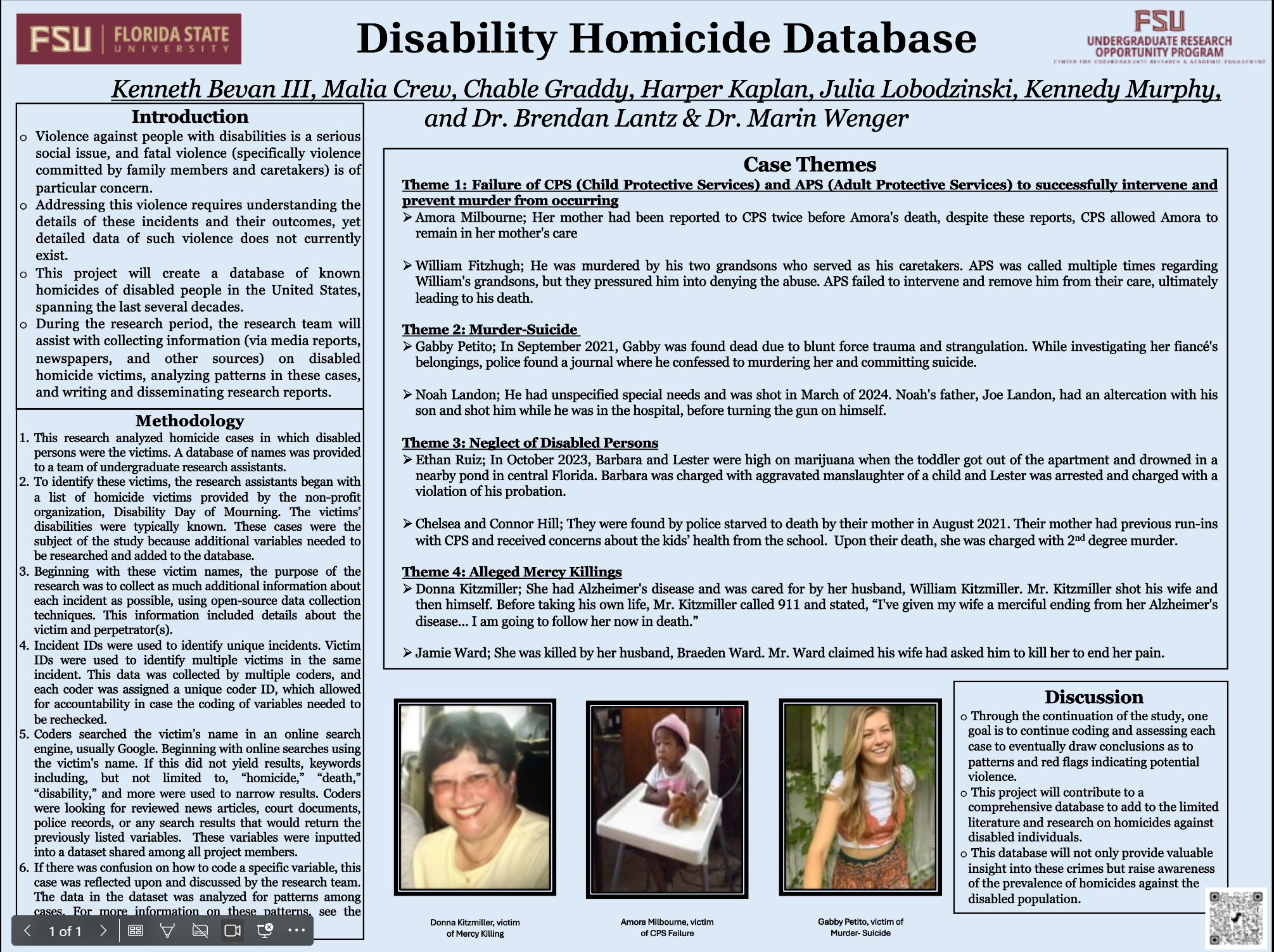Research Symposium
25th annual Undergraduate Research Symposium, April 1, 2025
Malia Crew Poster Session 1: 9:30 am - 10:30 am / Poster #167

BIO
Hi! I'm Malia Crew. I am a current freshman at FSU that will be graduating in Fall 2026. I am from St. Petersburg Florida and a fourth generation student of FSU. I enjoy the swimming, playing beach volleyball, and escape rooms. My majors are criminology and psychology and I plan on looking for a job in law enforcement in the future. I love research and plan to stay with the disability homicide database until I graduate. For research in the future I would be interested in improving jail conditions in Florida or looking for ways to improve the safety of law enforcement officers.
Disability Homicide Database
Authors: Malia Crew, Dr. Brendan LantzStudent Major: Criminology, Psychology
Mentor: Dr. Brendan Lantz
Mentor's Department: Hate Crime Mentor's College: Florida State University Co-Presenters: Kenneth Bevan III, Malia Crew, Chable Graddy, Harper Kaplan, Julia Lobodzinski, Kennedy Murphy
Abstract
Violence against individuals with disabilities is a significant social issue, with fatal incidents—specifically those committed by family members or caretakers—being of particular concern. Addressing this violence requires a comprehensive understanding of these incidents; however, detailed data on such cases is currently lacking. This research project aims to fill this gap by developing a database of known homicides of disabled individuals in the United States over several decades. Researchers compiled data using open source data collection techniques, including collecting data from media reports, police records, social media, and obituaries, coding cases based on variables such as age, location, race, gender, type of violence, criminal history, and warning signs. The goal was to reach data saturation, ensuring the most complete picture of each case. This dataset enables pattern analysis through data analytics and research reports, providing patterns that can inform strategies to protect individuals with disabilities. Key indicators, such as prior criminal history or past child protective services involvement, can help law enforcement identify and intervene in high-risk situations before violence occurs. In the next phase, this project will continue gathering data and refining its approach seeking out common themes to better understand and prevent violence against individuals with disabilities. Collaboration with policymakers and law enforcement will play a crucial role in strengthening protective measures and addressing systemic gaps. Through ongoing analysis and public awareness efforts, this research aims to drive meaningful change and build a safer, more just society for individuals with disabilities.
Keywords: Disability Homicide Database

